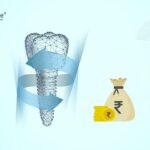The emergence of wisdom teeth, also known as third molars, is a milestone in many young adults’ lives. However, it’s often accompanied by discomfort, pain, and sometimes even complications. This prompts the question: when is the right time to bid farewell to these notorious teeth?
Firstly, it’s essential to understand why wisdom teeth often require extraction. Unlike other teeth, wisdom teeth don’t always have enough space to emerge properly, leading to impaction, where they become trapped beneath the gum line. This can cause pain, infection, and damage to adjacent teeth. Hence, the decision to extract wisdom teeth isn’t solely based on age but rather on individual circumstances.
Typically, wisdom teeth start to emerge between the ages of 17 and 25. However, this varies greatly among individuals. Some may experience no issues with their wisdom teeth, while others may face severe discomfort as early as their teenage years. Therefore, it’s crucial to consult with a dentist or oral surgeon to assess the specific situation.
One indicator that extraction may be necessary is pain or discomfort in the back of the mouth, accompanied by swelling or redness. This could signify impaction or infection, both of which may require intervention. Additionally, if the wisdom teeth are causing overcrowding or shifting of adjacent teeth, extraction may be recommended to prevent further dental problems in the future.
Dentists often use X-rays to assess the position of wisdom teeth and determine whether extraction is necessary. These images help identify any potential problems, such as impaction or damage to neighboring teeth, which may not be apparent during a visual examination.
Another consideration is the potential for complications associated with wisdom tooth extraction. While the procedure is generally safe, there are risks such as infection, nerve damage, and dry socket (a painful condition where the blood clot in the extraction site is dislodged). Therefore, the decision to extract wisdom teeth should be weighed carefully, taking into account the potential benefits and risks.
In some cases, it may be advisable to monitor the wisdom teeth closely rather than opting for immediate extraction. This approach is often taken if the teeth are not causing any problems and there is enough space in the mouth to accommodate them. However, regular check-ups are essential to ensure that any issues are detected early and appropriate action is taken if necessary.
Ultimately, the right time to get a wisdom tooth extracted depends on the individual’s specific circumstances. Factors such as the presence of pain or discomfort, the position of the wisdom teeth, and the potential for complications all play a role in the decision-making process. Therefore, it’s essential to consult with a dental professional who can provide personalized advice based on a thorough evaluation of the situation.
In conclusion, there is no one-size-fits-all answer to the question of when to get a wisdom tooth extracted. Instead, it’s a decision that should be made on a case-by-case basis, taking into account the individual’s unique circumstances and preferences. By working closely with a dentist or oral surgeon, individuals can make informed decisions about their oral health and ensure the best possible outcome.









